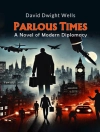Foul Play is a compelling anthology that delves into the multifaceted world of intrigue and deception. Through a range of literary styles, the collection captures a spectrum of themes, from moral ambiguity to the corrupting power of greed, presented in a dramatic narrative form. Readers will find themselves entranced by the rich tapestry of plots woven throughout, each story providing a unique lens through which the darker sides of human nature are explored, making this anthology a significant contribution to the theatrical and literary landscapes of its era. The anthology features the works of notable authors Charles Reade and Dion Boucicault, both celebrated for their innovative theatrical contributions. Their backgrounds in dramatics and storytelling significantly influence the anthology’s tone, as they expertly craft tales that reflect societal issues and the intricacies of human emotion. Aligning with the literary movements of the 19th century that sought to challenge the status quo and explore ethical dilemmas, Reade and Boucicault’s collective voices enrich the theme of Foul Play, offering readers insights into the historical and cultural contexts of their time. For readers seeking a diverse collection of perspectives that provoke thought and reflection, Foul Play serves as an essential volume. It offers a window into the complexities of action and consequence, with each story fostering a dialogue that transcends its pages. This anthology is not only educational in its breadth of insight but also enhances the reader’s understanding of narrative structure and thematic depth, making it a worthwhile addition to any literary collection.
Circa l’autore
Charles Reade (1814–1884) was a prolific English author and dramatist, noted for his powerful storytelling abilities and keen interest in social issues. Reade’s literary style often blended realism with melodrama, and his novels frequently tackled contemporary topics, including the injustices of Victorian society. With a passion for authenticity, he performed copious research, which earned him a reputation for detailed settings and intricate plots. Among his works, ‘Foul Play’ stands out as a compelling narrative that reflects his skill in weaving suspense and moral complexities into his fiction. Reade’s versatility as a writer is evident through his various other works, such as ‘The Cloister and the Hearth, ‘ which is frequently cited as his masterpiece, and ‘Hard Cash, ‘ which, like many of his novels, criticized social institutions by exposing their flaws. Though less known today, Reade’s works had a significant impact on Victorian literature, and his advocacy for social reform through his writings parallels the endeavors of his contemporaries Dickens and Trollope. While his novels were immensely popular in his own time, modern readers may also find his dedication to social issues and his storytelling flair to be both engaging and of historical interest.












